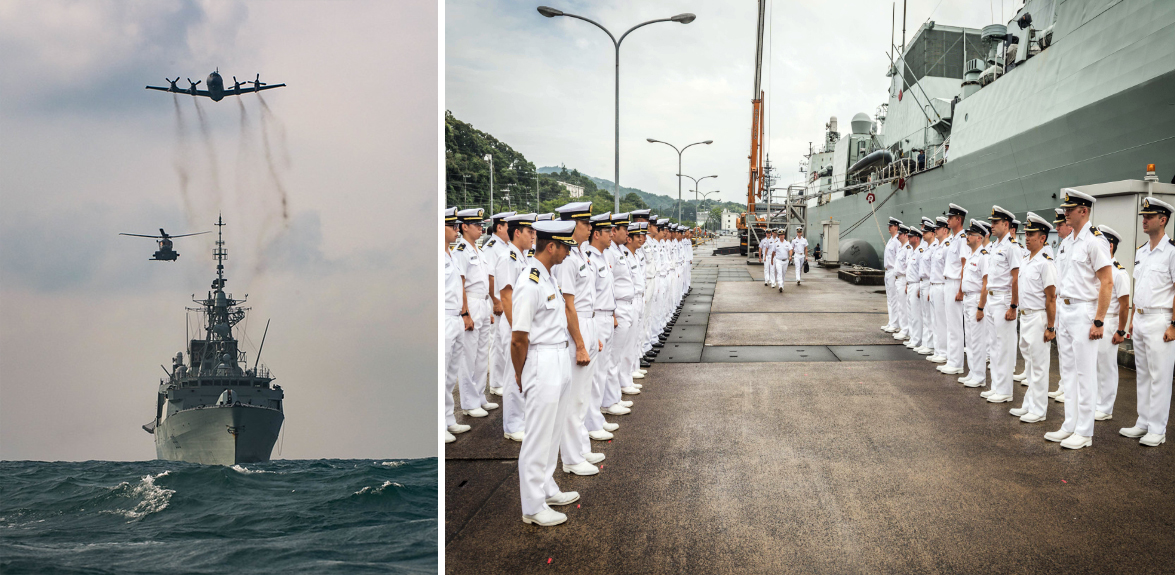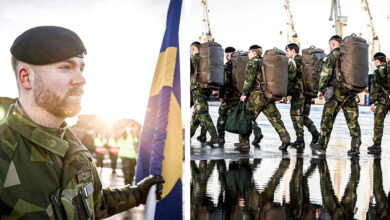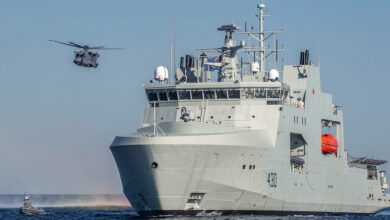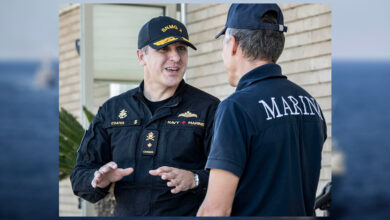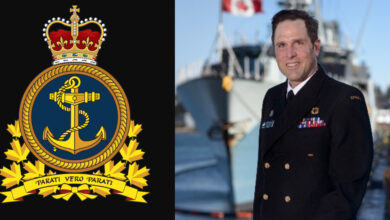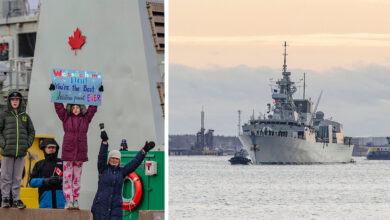Operations
CP-140 Aurora Air Detachment to Join Operation NEON
A CP-140 Aurora Air Detachment will fly out to Japan under Operation NEON as part of Canada’s ongoing commitment to bolstering its presence in the Indo-Pacific region.
The announcement came after bilateral meetings between Defence Minister Bill Blair and Japanese Minister of Defense Kihara Minoru. The meeting took place in Tokyo, Japan in early September.
“Minister Blair and Minister Kihara discussed defence and security challenges in the Indo-Pacific region, and agreed it is more important than ever to boost defence ties between Canada and Japan to promote peace and stability,” stated a readout from the meeting.
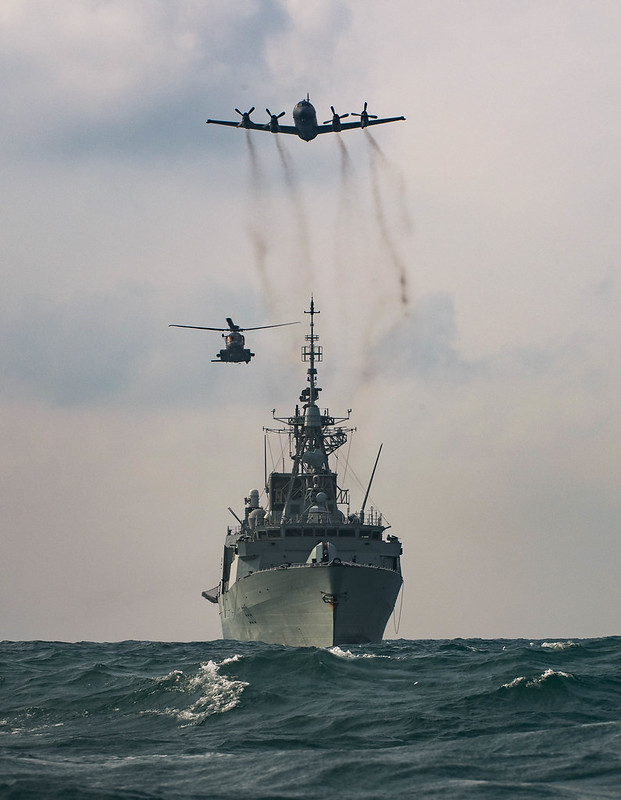
CP-140 Aurora Deployment
The CP-140 Aurora will be deployed for a four-week period from September to October, according to the announcement by the Department of National Defence (DND).
During this time, the aircraft will be on the lookout for suspicious maritime sanctions evasion activities. According to DND, this specifically includes “hip-to-ship transfers of fuel and other commodities banned by the UNSC.”
The RCAF detachment includes approximately 50 personnel.
The deployment falls under Operation NEON, the Canadian Armed Forces (CAF) contribution to the multinational effort to support the United Nations Security Council sanctions imposed against North Korea.
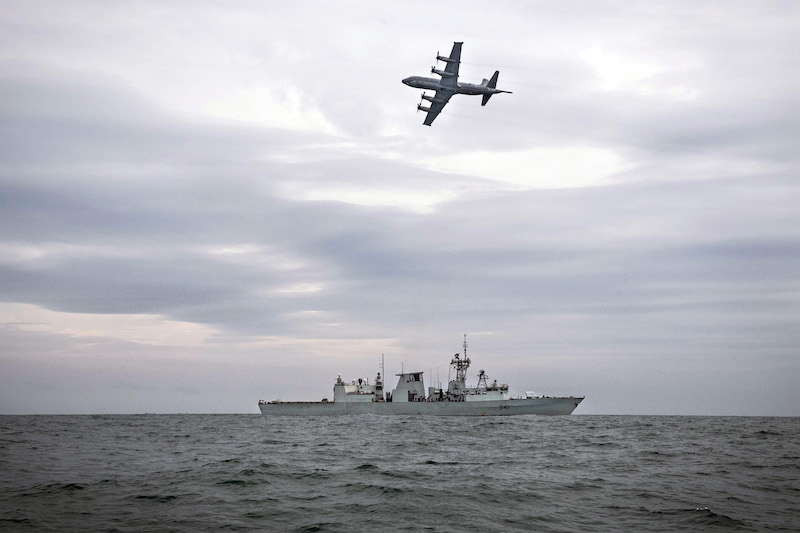
Indo-Pacific Commitment
Minister Blair’s visit to Japan highlighted Canada’s increased interest in the Indo-Pacific region. In his meeting, Canada’s defence minister highlighted the need to create a more “free, open and inclusive” region. The minister also condemned the Democratic People’s Republic of Korea’s, also known as North Korea, “provocative” actions in the region.
Regarding the meeting, DND noted that the Democratic People’s Republic of Korea’s “growing relationship with Russia also provides a clear reminder that Indo-Pacific security is linked to security around the globe.”
Canada’s increased commitment to the region is laid out in its recent Indo-Pacific Strategy. Under the strategy, the CAF now deploys three warships per year to the region, which allows the Royal Canadian Navy to participate in more multinational exercises.
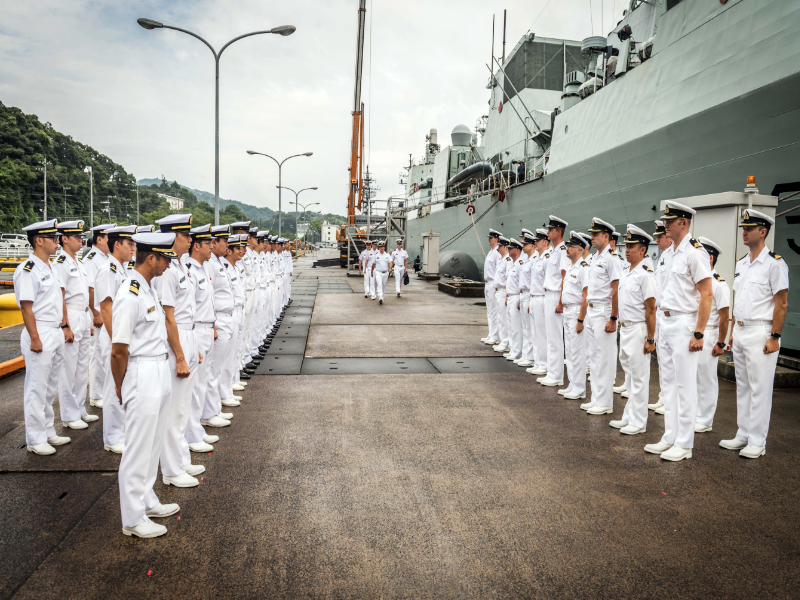
Japan and Canada Relations Strengthen
The increased interest in the region has helped to bolster Canada’s relationship with Japan—a fact the military is proud of.
“As security challenges grow in the Indo-Pacific, the Canada-Japan partnership is ever more important, with Japan being Canada’s only G7 partner in that region. The Ministers agreed that Canada-Japan defence relations will continue to grow and welcomed progress in increasing cooperation in key areas such as space, cyber and Special Forces. The Ministers agreed that both nations will continue to implement the Canada-Japan Action Plan for contributing to a free and open Indo-Pacific region, and that important progress is being made,” said DND in the press release.
The CAF has been able to partner with the Japanese Self-Defense Force for a number of exercises, such as the NOBLE series of Exercises in the South China Sea and Exercises ANNUALEX, KEEN SWORD, and Pacific Vanguard.
According to DND, the RCN and the Japanese Maritime Self-Defense Force conducted Exercise KADEX in the Timor Sea from Sept. 6-8. This exercise involved the Japanese destroyer JS Ariake (DD-109) and the Canadian frigate HMCS Vancouver (FFH 331) and helped to increase interoperability between the two navies.
During his visit to Japan, Minister Blair also spoke to Minister Kihara about Canada and Japan’s continued collaboration in space through the Combined Space Operations initiative and the Schriever Wargame.


